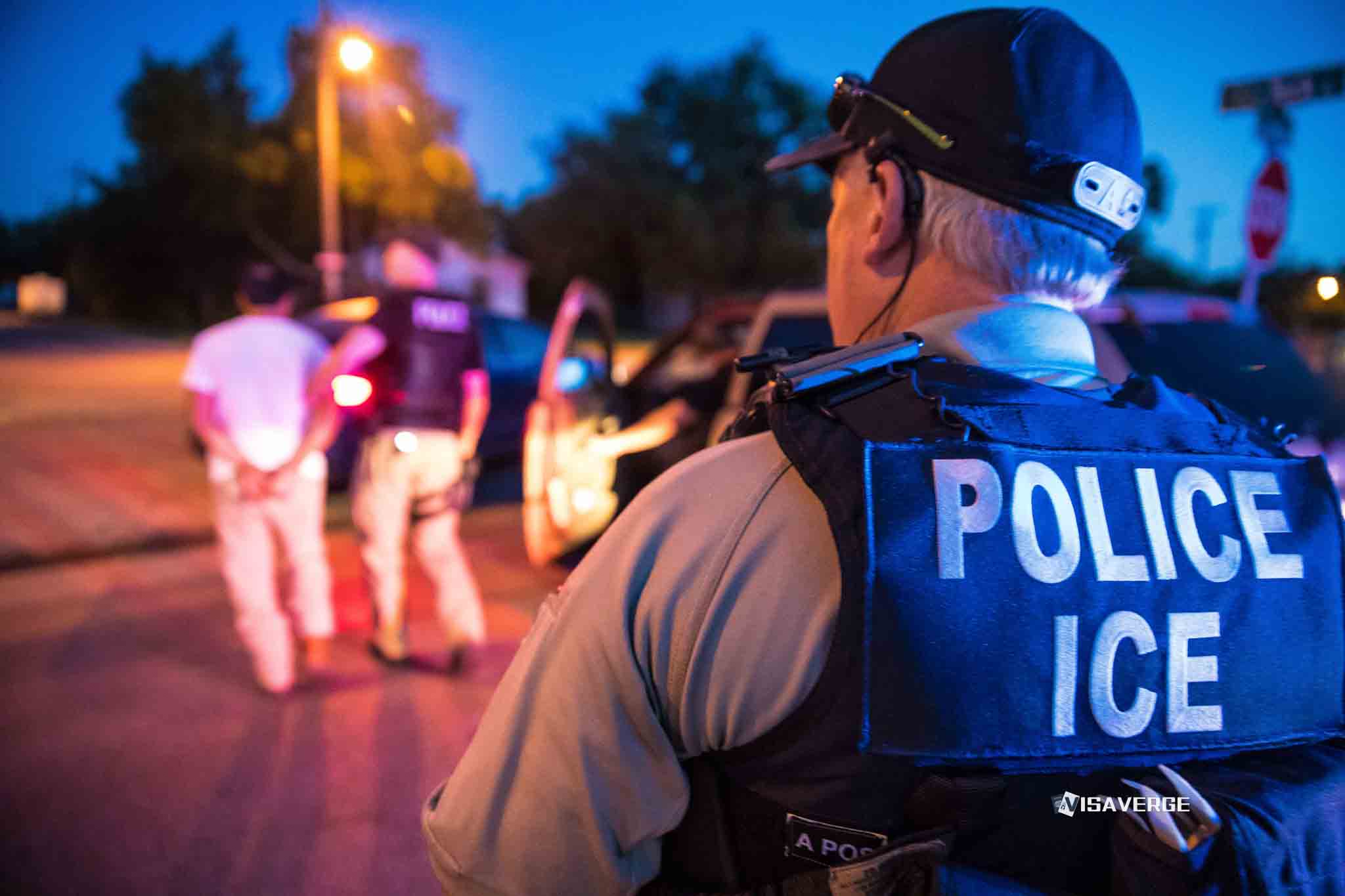In June and July 2025, Los Angeles faced a wave of aggressive ICE raids, leading to the detention of hundreds, including U.S. citizens. These actions, marked by military-style tactics and the involvement of the National Guard and Marines, have sparked national debate, legal challenges, and widespread fear in immigrant communities.
Mass Raids and Detentions in Los Angeles

The ICE raids in Los Angeles began in early June 2025, with coordinated operations across the city. At a major cannabis facility called Glass House, ICE agents detained over 360 people in a single day. Among those detained were at least two U.S. citizens, including a U.S. Army veteran, and 14 minors. Many workers hid for hours to avoid being caught, and some were injured during the chaos. Tragically, one worker, Jaime Alanis Garcia, died after falling from a roof while trying to escape ICE agents.
ICE agents wore face coverings and unmarked clothing, making it hard for people to know who was conducting the raids. This created confusion and fear, not just for those targeted but also for bystanders and the wider community. The use of military support, including thousands of California National Guard troops and 700 active-duty Marines, marked a significant escalation in how immigration enforcement is carried out in the United States 🇺🇸.
Official Justifications and Lack of Charges
DHS Secretary Kristi Noem defended the ICE raids, saying they were necessary to fight child trafficking and criminal activity. However, as of August 5, 2025, neither the Department of Homeland Security (DHS) nor the Department of Justice has announced any charges related to these claims. Many people remain in ICE custody, including U.S. citizens who were mistakenly detained. Advocacy groups report that detainees often struggle to get legal help or even basic information about their cases.
Glass House officials stated that only nine of those detained were their direct employees and denied that any minors worked for them. This highlights the confusion and collateral damage caused by the raids, as many workers were not directly connected to the company but were still caught up in the operation.
Military Involvement and Policy Expansion
The Trump administration ordered the deployment of military forces to support ICE, overriding objections from California state and local officials. This move has raised serious concerns about the use of military power in civilian law enforcement. The raids are part of a new federal directive from Deputy White House Chief of Staff Stephen Miller and DHS Secretary Kristi Noem, aiming for up to 3,000 immigrant arrests per day—a number four times higher than previous averages.
The Senate is currently debating the “One, Big, Beautiful Bill,” which, if passed, would give ICE even more resources, including a bigger budget, more detention centers, and advanced surveillance technology. This bill could make these types of large-scale enforcement actions more common in the future.
Impact on Communities and Workers
The ICE raids have created a climate of fear in Los Angeles. Many immigrants and their families are now afraid to go to school, visit the doctor, or even report crimes to the police. This fear affects not only undocumented immigrants but also U.S. citizens, who worry about being mistakenly detained during these aggressive operations.
Farmworkers, including those not directly employed by targeted companies, have faced problems getting paid for work they did before the raids. Glass House claims it paid labor contractors to make sure all workers received their wages, but confusion remains, and many workers are still waiting for their money.
Legal and Civil Rights Concerns
Reports from advocacy groups and legal experts say that due process protections have been weakened during these raids. Many detainees, including U.S. citizens, have been held for long periods while their status is checked. Access to legal counsel is limited, and some people have been pressured to sign documents without understanding their rights.
Civil rights advocates argue that these ICE raids set a dangerous precedent by blurring the line between immigration enforcement and military action. They warn that this undermines constitutional protections for everyone, not just immigrants. As reported by VisaVerge.com, the detention of U.S. citizens during these raids has raised serious questions about the accuracy and fairness of ICE’s enforcement tactics.
Advice for Those Affected
If you or someone you know is detained during an ICE raid, it is important to:
- Ask to speak to a lawyer immediately.
- Do not sign any documents without legal advice.
- Contact a trusted immigration attorney as soon as possible.
- Reach out to local legal aid organizations for help.
For up-to-date information and support, you can visit the ICE official newsroom or contact local organizations such as the Immigrant Defenders Law Center in Los Angeles.
Background and Historical Context
The 2025 ICE raids in Los Angeles represent a dramatic increase in immigration enforcement compared to previous years. The use of military support in these operations is unprecedented and has led to strong reactions from local and state officials, who argue that it erodes trust between immigrant communities and law enforcement.
The pending Senate bill could make these enforcement practices permanent by expanding ICE’s powers and resources. Civil rights organizations are preparing lawsuits to challenge the legality and constitutionality of the raids, especially the detention of U.S. citizens and the use of military force in domestic law enforcement.
Community Response and Future Outlook
Mass protests and advocacy campaigns continue in Los Angeles and across the country. Community leaders are calling for more oversight, transparency, and protection for immigrant communities. Legal experts warn that if the Senate passes the “One, Big, Beautiful Bill,” it could lead to even more aggressive ICE raids and further militarization of immigration enforcement.
At the same time, federal officials insist that these actions are necessary for public safety, though critics point out the lack of evidence for many of the criminal allegations used to justify the raids.
Practical Steps and Resources
Anyone affected by ICE raids should:
- Stay informed by following updates from trusted sources and official government websites.
- Know your rights and keep important documents in a safe place.
- Connect with local advocacy groups for support and legal assistance.
For more information on what to do if you are affected by ICE raids, visit HIAS’s resource page.
The events in Los Angeles highlight the urgent need for clear policies that protect both national security and the rights of all residents, including U.S. citizens. As legal battles and policy debates continue, the outcome will shape the future of immigration enforcement in the United States 🇺🇸.
This Article in a Nutshell













